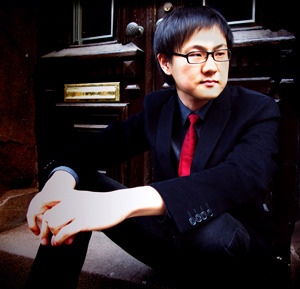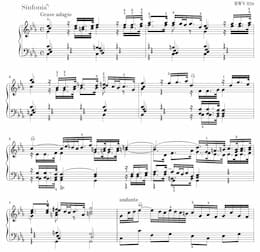 Whenever girls find joy in devoting themselves to fairies and princesses, boys hail and cheer on supermen and heroes. Perhaps this is what raises eyebrows of a few when composer Moon Young Ha’s Fairytale is first presented, trying to cross the gender barrier with his music. Well, then what exactly is a fairy tale like from a masculine perspective? The answer is: a perfect harmony and synchronization of pizzicatos between strings and the clarinet, accelerating and bringing the music to a halt, with dramatic dynamics that connect the imaginative passages which lead audience to a great adventure throughout- who says men snooze over fairy tales? “My father is a poet and he used to put me to sleep by telling me all sorts of legendary tales, happy, sad, scary etc. My piece is written for a combination of the many tales I heard, each is assigned with a unique musical style.”
Whenever girls find joy in devoting themselves to fairies and princesses, boys hail and cheer on supermen and heroes. Perhaps this is what raises eyebrows of a few when composer Moon Young Ha’s Fairytale is first presented, trying to cross the gender barrier with his music. Well, then what exactly is a fairy tale like from a masculine perspective? The answer is: a perfect harmony and synchronization of pizzicatos between strings and the clarinet, accelerating and bringing the music to a halt, with dramatic dynamics that connect the imaginative passages which lead audience to a great adventure throughout- who says men snooze over fairy tales? “My father is a poet and he used to put me to sleep by telling me all sorts of legendary tales, happy, sad, scary etc. My piece is written for a combination of the many tales I heard, each is assigned with a unique musical style.”
Having studied jazz, rock and pop atop contemporary music, Moon Young regards his own musical style as a natural breath. “I think my musical style just happens naturally. I do not have any intention of introducing any particular kind of music.” It might be natural for the audience to expect the incorporation of flavours from traditional Korean music in Moon Young’s pieces, yet the composer refuses to delineate any particular nationalistic identity. Brought up in a multi-cultural family background, the New-York-based Korean composer admits it is sometimes not easy for him to compose music for abstract themes. “I need a concrete concept, story or metaphor to be based on for my composition.” Currently listening to works by Beat Furrer and Ligeti, Moon Young picks Russian composer Sofia Gubaidulina as one of his favourite composers.
Apart from music, Moon Young also takes pleasure in cooking and baking. Since composing is a long and draining journey, cooking offers Moon Young happiness and satisfaction in a much shorter time. “It feels good to be able to see yourself making something happen!” Indeed, the composer has made the fairy tales which had once fascinated him to ‘happen’ vividly again on stage via his intriguing music!
Links:
More Guest Posts
- Diversifying Piano Pedagogy with Brazilian Works from the Instituto Piano Brasileiro’s Database Explore fascinating Brazilian pieces perfect for students at every level
- The Other Mozart
Story of Wolfgang’s Sister Maria Anna From child prodigy to forgotten talent - Mahler der Maler: Painting New Sounds of Nature in Mahler’s First Symphony Find out how the work opens up an entirely new dimension of the ‘symphony’
-
 Partita for Piano No. 2 BWV 826 by J.S. Bach. A Review Listen and compare the performances by Maria Tipo and Martha Argerich
Partita for Piano No. 2 BWV 826 by J.S. Bach. A Review Listen and compare the performances by Maria Tipo and Martha Argerich

